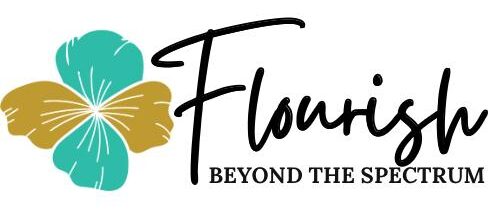Sensory Harmony: Natural Approaches to Help Autism Thrive

Many individuals with autism face sensory processing difficulties, where everyday sounds, lights, or textures can feel overwhelming and uncomfortable. These sensory sensitivities can lead to stress, anxiety, and difficulty focusing, making it challenging to navigate daily life. However, by embracing a holistic approach, you can help your loved one manage sensory overload and create a more comfortable environment.
Understanding Sensory Processing and Autism
Sensory processing refers to how the brain interprets and responds to sensory input—everything we see, hear, touch, smell, and taste. For individuals with autism, the brain may overreact or underreact to these stimuli, making ordinary experiences feel intense or even distressing. For instance, bright lights might cause discomfort, or the sound of everyday noises can become unbearable. Holistic strategies can play an important role in easing these sensory sensitivities and supporting a person’s overall well-being.
Holistic Therapies to Support Sensory Processing
There are several natural and therapeutic methods that can help individuals with autism manage sensory overload. These therapies aim to calm the nervous system, reduce anxiety, and create balance.
- Occupational Therapy (OT)
Occupational therapy is a highly effective tool for addressing sensory issues. Trained therapists use specialized techniques, such as sensory integration exercises, to help individuals develop coping mechanisms. These exercises are designed to improve the brain’s ability to process sensory input, making it easier for the individual to manage stimuli.
- Sound Therapy
Sound therapy, including music therapy or listening programs, helps desensitize individuals to certain noises that may trigger discomfort. Listening to soothing music, nature sounds, or structured sound therapy programs can help create a calming effect, reducing stress related to auditory sensitivities.
- Essential Oils and Aromatherapy
Aromatherapy can be an excellent addition to a sensory management plan. Certain essential oils, such as lavender, chamomile, or frankincense, are known for their calming effects. Incorporating these oils into diffusers or applying them topically (diluted) can create a relaxing atmosphere and soothe the nervous system.
Building a Sensory-Friendly Environment
In addition to holistic therapies, creating a sensory-friendly environment can greatly reduce stress and enhance comfort for individuals with autism. Making simple changes to your home or personal space can have a big impact on reducing sensory overload.
- Soft, Adjustable Lighting: Avoid harsh fluorescent lights or overly bright bulbs. Opt for soft, adjustable lighting options like dimmable lights, soft lamps, or natural light with blackout curtains to control brightness levels.
- Soothing Sounds: White noise machines, calming instrumental music, or nature sounds can create a peaceful background to drown out unwanted noise. Having these options available provides a sense of calm.
- Comforting Textures: Sensory-friendly fabrics and materials, such as soft blankets, cushions, or weighted blankets, can provide comfort. Avoid scratchy fabrics and consider offering a variety of tactile items for self-soothing.
- Create a Safe Zone: Designate a small, quiet corner or space where the individual can retreat when feeling overwhelmed. This area should be free from sensory triggers, with calming elements like soft seating and gentle visuals.
The Power of Holistic Care in Autism
A holistic approach to sensory processing challenges offers a path toward greater comfort and improved focus for individuals with autism. By combining therapeutic methods like occupational and sound therapy with thoughtful changes in the environment, families can help ease sensory overload and promote a sense of calm.
Every person’s sensory needs are unique, so it’s essential to explore and find the right combination of therapies and environmental adjustments that work best. With the right support, individuals with autism can feel more grounded and confident in managing their surroundings.
🌿 Curious about how holistic therapies can help with sensory sensitivities?
✅ Book a 15-minute free consultation with Dr. Lyonie Charles.
✅ Follow our Facebook page for more nutrition tips and gut health insights.
✅ Join our community to connect with other parents on similar journeys.
Let’s work together to create calm, sensory-friendly environments that support individuals with autism on their journey to well-being! 💙

